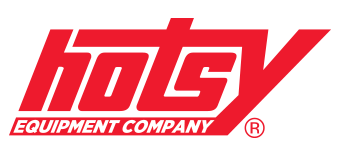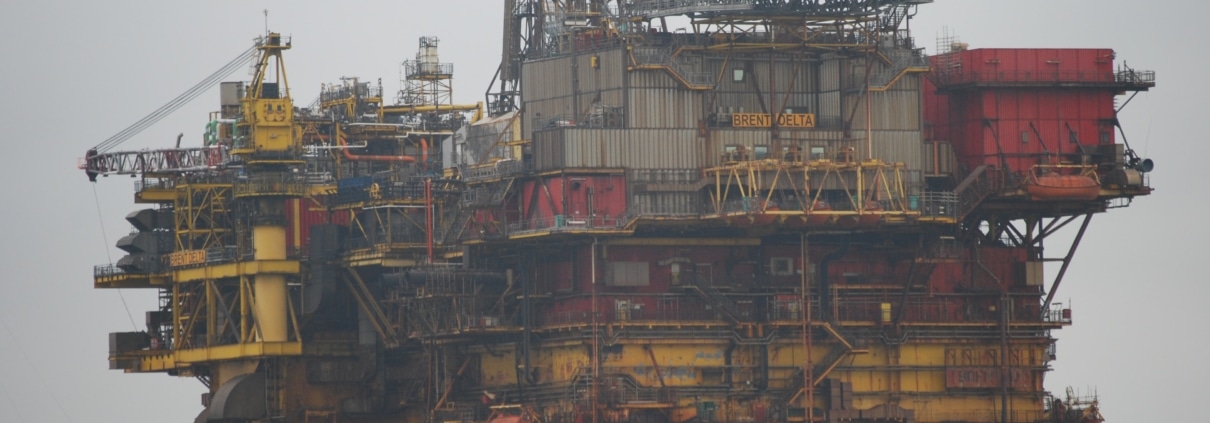Oil Rig Pressure Washing Equipment: Keep Your Site Safe & Clean With These Tips!
There’s no question that working on an oil rig can be one of the dirtiest jobs out there. From oil spills to drilling mud, it seems that each sequence brings a new mess. Thus, you need a fast, effective means of keeping your job site clean and safe. And for that, there’s no better solution than oil rig pressure washing equipment.
Today, we’re going to introduce you to the benefits of pressure washers in San Antonio and a quality detergent can offer in your cleaning regimen. You’ll learn how oil rig pressure washing equipment stands up against other cleaning methods. And then, we’ll guide you through choosing the right equipment for your unique needs.
Towards the end, we’ll actually guide you through using the equipment so you can feel confident empowering your team with the equipment, supplies, and knowledge necessary to keep the rig looking pristine. Let’s not waste any time!
Why Cleaning Oil Rigs is Not Something You Can Take Lightly
Working on an oil rig is a notoriously messy job. From the crude oil you’re trying to extract to the drilling mud and other byproducts that come up during drilling, it seems like there’s always something making a mess.
Beyond just being unsightly, having a dirty oil rig is a liability. For example, spills can create slipping hazards that put your workers at risk for injury. And if left unchecked, debris and corrosion can cause equipment failures. This is not just costly in terms of replacements – but also in terms of lost productivity through downtime.
In other words, cleaning your oil rig is not just about keeping things tidy – it’s about maintaining a safe work environment. It also helps preserve expensive equipment and supplies to maximize the ROI. That’s why it’s important to have a fast, effective means of cleaning up any messes that occur.
And while there isn’t much you can do to prevent these messes, there is a way you can make quick work of cleaning them. Let’s take a look at your options below.
Why Oil Rig Pressure Washing Equipment is the #1 Solution to Keeping Your Site Clean
So – cleaning oils rigs is important. You probably knew that already…but what is the most effective, efficient process for cleaning oil rigs? First, you need to know what not to do. The most common method of cleaning oil rigs is also the least effective. Manual scrubbing involves using a brush and detergent to clean surfaces by hand.
This process is very labor-intensive, which makes it both time-consuming and expensive. Moreover, it’s not always effective at removing all the dirt and grime – especially if the mess is set in or difficult to reach. When you consider what you’re paying your employees, surely there has to be a more efficient approach to cleaning up messes…right?
That’s where oil rig pressure washing equipment comes in.
The pairing of a high-powered hot water pressure washer and a quality degreasing detergent is unmatched in efficacy and efficiency. You can keep either an electric or gas pressure washer on hand and be prepared to clean up messes as they arise – whether it be mud from the pre-drilling, sequence, crude oil spills from production, or just the accumulation of equipment grease from facilities operation.
Whether you’re working in an oil field or offshore, there is a type of pressure washer out there that can help. And, there are also types of soap to use in pressure washers specifically designed to address these hard-to-clean compounds.
But – to truly unlock all the benefits this dynamic duo has to offer, it’s imperative that you carefully choose the right equipment and supplies. So – allow us to help you choose your lineup…
Choosing the Right Oil Rig Pressure Washing Equipment & Supplies
There’s a lot to unpack when trying to choose a pressure washer. There is the hot water vs cold water pressure washer debate, and you also must ask yourself – what PSI pressure washer do I need? Of course, there is also the issue of determining what GPM for a pressure washer is necessary, too.
And don’t even get us started on how to use a pressure washer with detergent – this is another key consideration. Not all soaps will work for this type of cleaning job.
All of this can lead to decision overwhelm – but we’re here to simplify things for you. Let’s start by going over the essentials of a pressure washer for oil rig cleaning.
Get a Commercial Hot Water Pressure Washer With Ample PSI & GPM
First and foremost, you need a quality pressure washer. This is non-negotiable if you want to achieve optimal results. And while there are many different types and brands of pressure washers on the market – not all are created equal.
For oil rig cleaning specifically, you’re going to want a commercial hot water pressure washer. These models have much more power than your standard home-use machine – making them ideal for taking on tough messes like oil spills and equipment grease buildup. When choosing a model, look for one with at least 3,000 PSI and 4 GPM. This will give you plenty of power to clean even the most stubborn messes quickly and easily.
Also, make sure the machine you choose is durable and built to last. After all, it will be working overtime in some pretty tough conditions. You should also consider your water source. In certain instances, you will need to bring in a water source to your field in remote locations – and building a pressure washer trailer is one option. But, there’s actually a better way…
If you’re in the South Texas area or nearby, you can look no further than Hotsy.
Our collection of commercial hot water pressure washers for sale & pressure washer trailers for sale consists of a diverse range of options – no matter your needs. And you don’t have to stress over choosing the right one – we’ve been doing this for decades, and can get you set up with exactly what you need! And if you’re just interested in commercial pressure washer rentals, we can help you out there, too.
But – even the best commercial pressure washer will fall short of expectations if you don’t pair it with the right detergent – so let’s talk about that next.
Pair With a Pressure Washer Detergent That Can Handle Oil Spills & Grease Buildup
As we mentioned earlier, not all soaps are created equal. In fact, using the wrong soap in your pressure washer can actually damage the machine – so don’t even think about using homemade pressure washer detergent!
Instead, stick with the carefully crafted formulations we have at Hotsy. We have the best pressure washing soap in the industry. In fact, we have certain formulations designed specifically for cutting through caked-on grease and tough oil messes. Here are some specific recommendations straight from our catalog:
- Hotsy Brown
- Ripper I or II
- Breakthrough!
Along with the actual detergent, make sure you also have the right soap nozzle for pressure washer. For this particular job, we recommend a 0° or 15° nozzle. A 0° is best for removing oil stains, while the 15° can handle both oil stains and general cleaning.
And finally, don’t forget about safety! Let’s talk about PPE next.
Don’t Forget About PPE Gear
Pressure washer injuries and accidents are rare. But even those that do occur could have been avoided if the user simply wore the proper PPE! Of course, other safety measures should be taken as well – like clearing the area before working and never pointing the nozzle at another person.
But in terms of PPE gear, you need at least the following:
- Safety goggles that fully enclose the eyes
- Heavy-duty waterproof gloves (insulated, ideally, to protect against hot water)
- Heavy-duty raincoat (insulated, ideally, to protect against hot water)
- Slip-proof rubber boots
It’s also essential that you train your operators on safe pressure washer use. Our article on how to operate a power washer is a great introductory resource. We also have a guide on safely starting a pressure washer. And finally, you can review our guide on advanced pressure washer tips and tricks to start cleaning oil rigs like an expert.
Speaking of which – we feel it’s fitting to provide a quick overview of how to actually pressure wash an oil rig! Let’s take a look…
Cleaning Oil Rigs With Pressure Washing Equipment: Tips & Tricks
Actually cleaning oil rigs with a pressure washer is as simple and straightforward as it gets. Simply plug the unit into an electrical outlet or fill it with gas – depending on which model you go with. Then, you can connect to a water source and fill the unit with the pressure washer degreaser soap you bought.
At that point, it’s as simple as spraying the floors and equipment of your job site as necessary. If you are tackling a tough, caked-on stain, you should let the detergent sit and soak for a bit. The active pressure washing soap ingredients will work their magic to break the grime free from the surface it’s attached to. Then, you can come in and blast the suds away to reveal a like-new shine.
Our advice is to keep your pressure washer on-site ready to go at a moment’s notice. This way, you’re able to quickly clean up messes as they arise in each sequence. Tackling spills and grime in this manner prevents the substance from taking hold and hardening off – allowing for more effortless cleaning.
With that said, you do want to make sure you know how to store a pressure washer when it’s not in use at the end of the workday. You should unplug it, empty the detergent tank and clear the hose lines. We also encourage you to protect your investment by learning how to service pressure washers.
Final Thoughts on Oil Rig Pressure Washing Equipment
There you have it – our complete guide to using oil rig pressure washing equipment on your job site.
Whether you’re in a field in the middle of nowhere or somewhere offshore, this will be one of the best investments you make in your cleaning process. You won’t have to stress about accidents or equipment degradation from oil, mud, and grease ever again.
At this point, there’s only one thing left to do – visit us in person or give us a call. As the premier choice for pressure washing equipment in San Antonio and throughout South Texas, you can trust that we’ll get you set up with everything you need to take your cleaning process to the next level.



